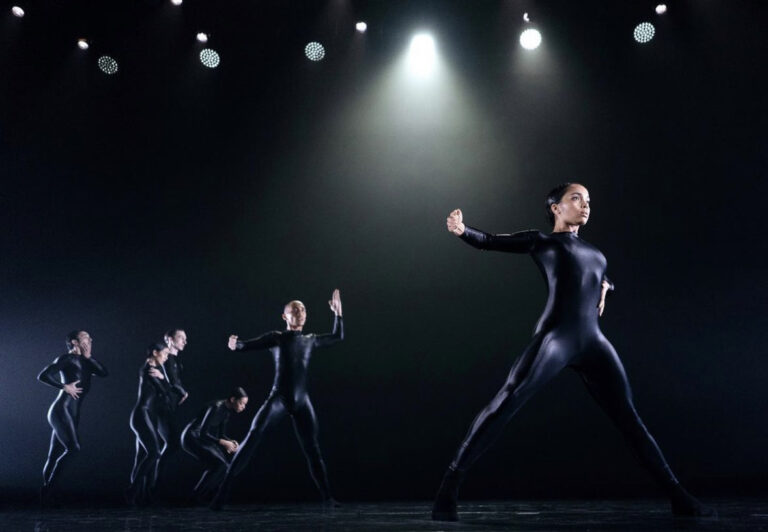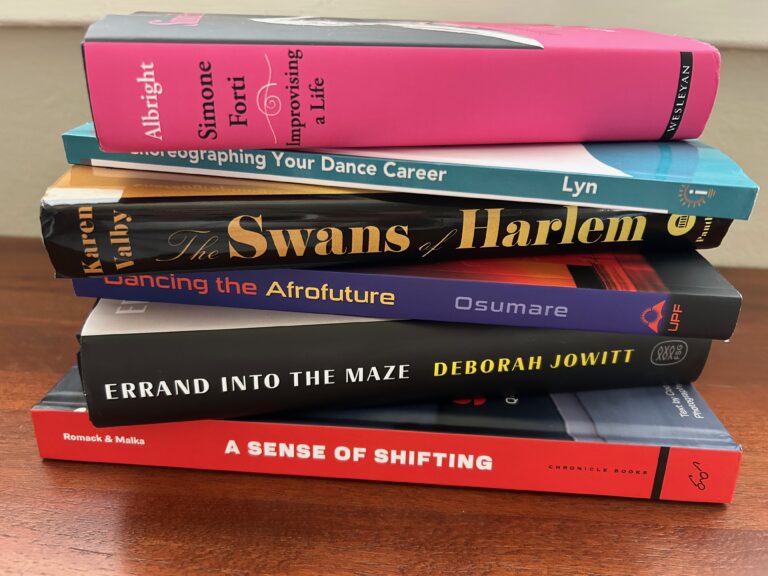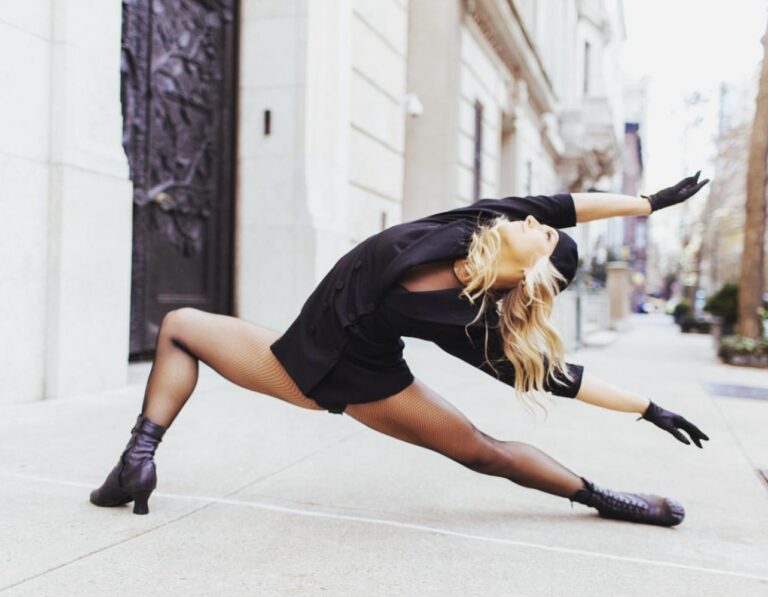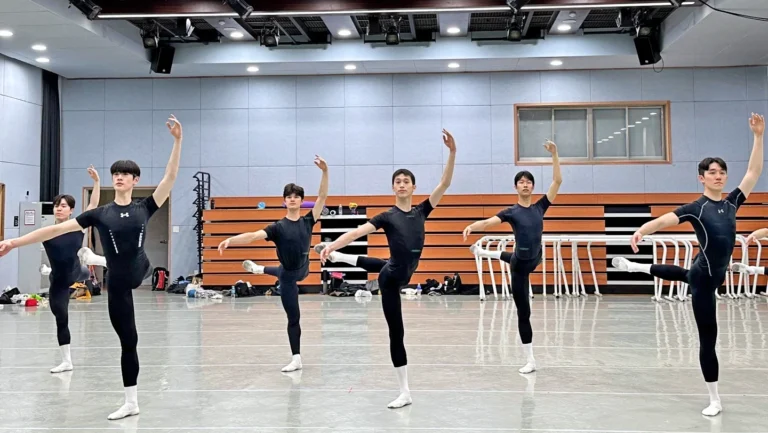How to bring in a little extra at the end of the year
Imagine making enough money during your studio’s recital to pay for your entire summer. That’s the reality for Robin Dawn Ryan, owner of Robin Dawn Academy in Cape Coral, FL, who brings in over $50,000 at each recital. Your studio shells out a ton of money for year-end productions, but with a little creativity they can be lucrative. Read on to see how Ryan and others turn their recitals into moneymaking opportunities.
Robin Dawn Ryan
Robin Dawn Academy (325 students)
Cape Coral, FL
Robin Dawn Academy’s recital program books are works of art, and owner Ryan offers a contest to her students—whoever sells the most ads gets to be in a group picture on the book’s cover. Students must sell $1,000 worth of ads to be included in the cover shot—usually 10 to 15 students make this cut—and one student who must sell $1,750 worth of ads earns a solo shot with Ryan on the back cover. Ads cost between $25 and $265—twice as much as the printing expense. “If you have 300 kids at your studio, and everyone sells one $25 ad, you’re making money right there,” says Ryan. This year, she made $9,000 on her book, but usually the number is upwards of $15,000.
The program reflects each recital’s theme. And the cover prize is more than just photos—it’s an experience. “We make it a big deal,” Ryan says. “One year we had jackets made for the photo shoot. No one has them except for those 10 kids.” When the theme was games, students got early-morning access to Toys “R” Us for a fun-filled photo shoot. And this year’s theme took them to Disney World! (When the prize is this spectacular, Ryan raises the ad quota.) At recitals, she offers the books to audience members for $5 each.
Another big moneymaker on recital day is Stargrams. “When I was a little girl, we would get all excited when someone would send us a ‘congratulations’ telegram to the theater,” she says. “So we sell Stargrams that include things like stuffed animals, flowers or balloons, and we try to incorporate the show’s theme.” Stargrams range from $5 to $30 and can be ordered up to a month in advance. The packages are delivered to students in the dressing rooms. “But here’s the problem,” says Ryan. “When Susie gets a Stargram, but her best friend Becky doesn’t, it is not a pretty sight. That mother will run out and beg for an extra Stargram. So we have some on standby, just in case.”
Luanne Sorrentino
Mrs. Rosemary’s Dance Studio (1,500 students)
Staten Island, NY
Luanne Sorrentino runs Mrs. Rosemary’s Dance Studio with her two sisters. Their mother, Mrs. Rosemary, passed away two years ago, and her favorite recital tradition was putting together teddy bears dressed in outfits to match the children’s costumes. When the studio ordered costumes, Mrs. Rosemary would ask for extra fabric to be fashioned into miniature teddy tutus. The cost was minimal (about a dollar per bear, plus the time it took to assemble), and they sold the bears for $10 to $15 each on recital day. “The students loved them, and they’d collect them year after year,” says Sorrentino. “Even if they were 16, they’d need to have one that matched every costume.”
And Sorrentino started her own tradition last year: a highly successful raffle that helped get the studio through the summer. Audience members get three tickets for $10, and prizes include a free year of dance (any one-hour weekly class); a recital basket including a free costume, a photo package, a recital video and four tickets for the front orchestra (a prized possession in the 2,000-seat St. George Theater); a dance attire package from the studio’s retail store tailored to the classes the student is taking; and 50 percent of the raffle’s earnings.
Cathy Defregger
Edgewater Academy of Dance (130 students)
Gilford, NH
“We have to make a certain amount in order to make it through the down season that is the summertime,” says owner Cathy Defregger, who has learned that forming give-and-take relationships with local businesses saves her studio a great deal. DanceOn Dance Apparel and More, a local retail store, brings a booth of products to each Edgewater recital. Along with dancewear, DanceOn owner Kathy Brown sells water bottles, and she donates the proceeds to Edgewater.
Defregger also partners with a local theater company—she often choreographs for them, and the company prints her recital programs at cost. And a deal with a local flower shop gets her recital bouquets at close to cost, so she makes enough from sales to purchase extra flowers to give to teachers onstage and to offer scholarships to dancers. She also uses a local business to create T-shirts and sweatshirts with the recital’s logo (designed for free by her husband, an artist).
“Since the store is local, the turnaround is quick,” she says. “I try to preorder everything, but the company will keep the screen set up for a little bit after the recital, so that I can put in more orders after the show.” In the end, shirts make the studio a couple hundred dollars, “and you can’t forget that year after year I see kids around town wearing those shirts,” she says. “That advertisement for the studio is a hidden value.”
Defregger is constantly on the lookout for online deals on products to sell, like tote bags or metal water bottles. To avoid having to throw away unsold items after a show, she stamps them with the school’s logo rather than the recital logo. “That way I can sell them year after year,” she says. “But I’m careful with how much I sell. I don’t want the recital to turn into one huge marketplace. I want it to be about the kids performing.”
Jennifer Ness
Dance Elite (350 students)
Lynnwood, WA
Jennifer Ness has found a way to make selling recital merchandise easier on herself and her students’ parents. In addition to $75 for costumes, all performing students pay an all-inclusive fee of $100 for a recital package that includes four tickets, a DVD of the show, a recital T-shirt and a one-line good luck message in the program (Ness estimates that 60 percent of parents are willing to chip in the $15 for extra lines). “It’s easier for them to buy the whole package at once and know that everything’s going to be there,” she says. “And from our standpoint, it was getting harder to judge how many people were going to purchase DVDs or T-shirts. We’d end up with all this leftover stuff at the end of the year. That money was wasted, and we’d end up just giving it away.”
The studio doubled its recital income last year when it first offered the package. The all-inclusive fee allows her to strike up deals with local vendors, since she can guarantee a certain amount will be sold. Ness pays approximately $3.50 per Dance Elite T-shirt, and gets 350 copies of a professionally filmed DVD for only $900. Plus, she isn’t left with extras lying around. Not to mention the time it saves her staff, who used to make copies of DVDs themselves.
To save even more money, Ness searched for a photographer who could offer a quick turnaround. He takes all photos the week before the recital at the studio and has them ready to hand to parents on recital day. “We were spending a lot of money mailing the pictures out afterwards, because nobody would ever come pick them up over the summer,” she says. “Now the photographer sets up a table at the theater.” Ness’ vendor contract provides that the studio receives 25 percent of profits. Dance Elite made almost $2,500 last year on photos.
Ness has the same arrangement with a local flower company that has a booth at the recital. Parents complete order forms the week before, and Ness hands them over to the store. “Five years ago, I wasn’t contracting these things out, but then, a lightbulb turned on in my head and I thought, ‘I should be outsourcing this stuff,’” she says. “Studio owners are often under the assumption that we need to take care of everything ourselves. But we need to be focusing on the stuff that we’re actually good at.”
Photo ©istockphoto.com



